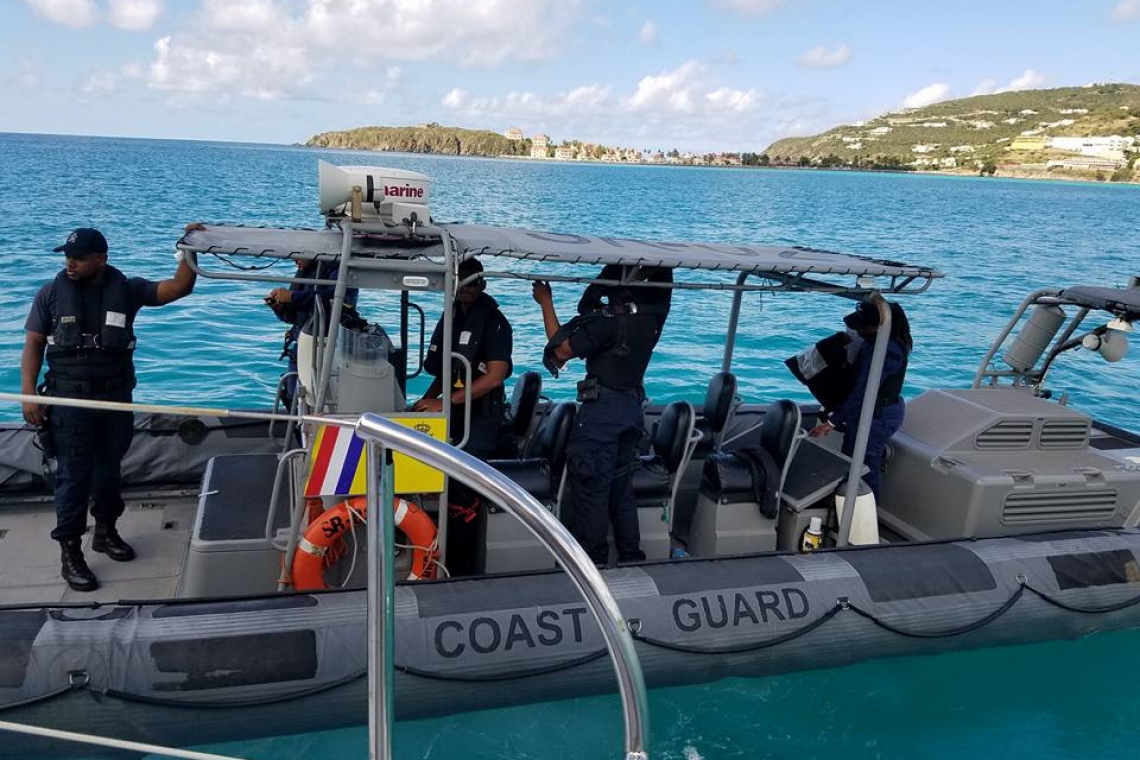~ Sustainability guaranteed through 2028 ~
THE HAGUE--In a letter to the Dutch Second Chamber, Defence Minister Ank Bijleveld said the Dutch Caribbean Coast Guard (DCCG) had seized a record-setting ten tonnes of cocaine in 2019. Additionally, the DCCG’s financial sustainability through 2028 has been guaranteed with commitments from the kingdom countries.
Bijleveld’s letter informed Dutch Members of Parliament (MPs) that the Defence Ministry had received the DCCG’s 2019 Annual Report on Friday, May 15. “The structure of this annual report follows that of the 2019 annual plan. The 2019 annual plan was implemented on January 18, 2019,” she said.
The DCCG seized a record-setting 10,100 kilogrammes (kg) of cocaine and nearly 1,000kg of other drugs in 2019. In total, the DCCG seized around 2,000kg of drugs in 2018.
“This is significantly more than in 2018. … The record catch seems to be in line with increased production of cocaine in the region and corresponds with record catches elsewhere,” said Bijleveld.
The DCCG also arrested 377 illegal migrants in 2019, up from 238 migrants in 2018.
“The worrying humanitarian situation in Venezuela played a role in this. Transportation of illegal migrants is usually combined with the smuggling of drugs and weapons. The Coast Guard transferred migrants and contraband to relevant authorities in the countries of the Dutch Caribbean,” said Bijleveld.
According to her, the DCCG also worked on strengthening its organisation and information management systems in various ways last year.
“In the operational field, solid efforts have been made on reinforced border control in St. Maarten through the purchase and commissioning of mobile radar and more intensive use of the Coast Guard helicopter and the cutter. … In terms of equipment, air reconnaissance capacity has been guaranteed by a contract extension until 2022. The replacement process is running separately, for which the selection of market parties started at the end of 2019.
“The usability of the cutters remains a challenge. The reduced availability is mainly caused by the duration of annual maintenance and major breakdowns,” said Bijleveld.
She said the DCCG’s annual exercise with the Venezuelan Coast Guard, called “Open Eyes”, did not take place last year. However, the DCCG made two working visits to Colombia, which were aimed at strengthening information exchange and cooperation in anti-drug operations, said Bijleveld.
Bijleveld also said the DCCG had allocated additional resources in 2019 via its spring memorandum. This is used to strengthen maritime borders and to discourage illegal migration flows.
“Of these resources, mobile radar capacity with a camera system on the ABC islands [Aruba, Bonaire and Curaçao – Ed.], as well as drones, and a boat jetty on Bonaire were acquired,” she said.
The DCCG’s financial sustainability has been guaranteed through its Long-term Plan 2019-2028, in which all kingdom countries committed their future contributions in 2019.
The Netherlands agreed to make 10.2 million euros available annually. Aruba will contribute an additional 2.64 million euros per year from 2022 to 2028, St. Maarten will make 840,000 euros available per year from 2021 to 2028, and, Curaçao will contribute 3.84 million euros annually from 2023 to 2029.
“All amounts mentioned are based on the 2019 price level. These commitments must be reflected in administrative agreements with the individual countries by 2020,” said Bijleveld.







